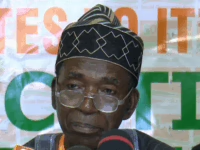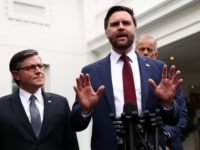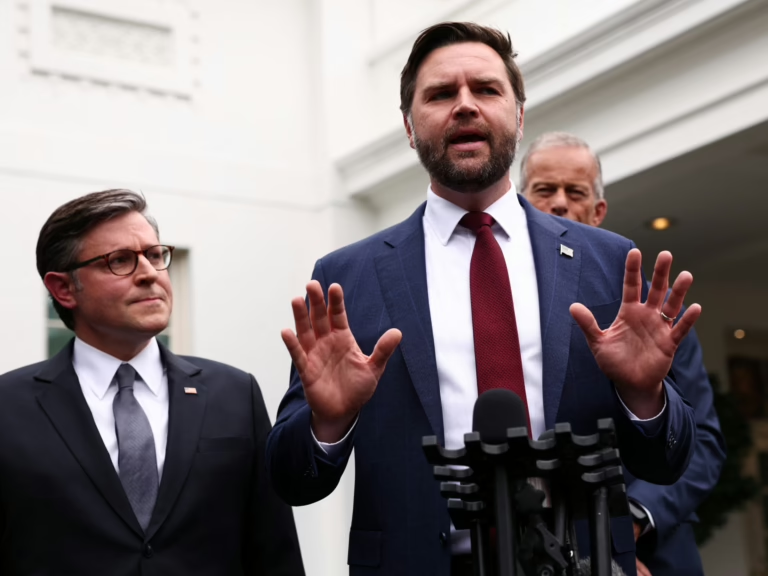Efforts by Congressional Democrats and Republicans to finalize a spending agreement with President Donald Trump have stalled.
Vice President JD Vance has issued a warning that the United States is on the brink of a government shutdown following unsuccessful negotiations between the White House and Congressional leaders on Monday regarding the federal budget.
President Donald Trump and Vice President Vance convened with bipartisan leaders in an attempt to forge a consensus on the spending bill.
“It appears we are heading toward a shutdown because the Democrats refuse to cooperate,” Vance stated to the press, standing alongside House Speaker Mike Johnson and Senate Majority Leader John Thune.
The deadline for reaching a funding agreement is 12:01 a.m. Wednesday (04:01 GMT). Failure to meet this deadline will result in the closure of government offices and furloughs for some federal workers until a resolution is found.
Republicans are advocating for a continuing resolution that maintains current federal funding levels through November 21.
Meanwhile, Democrats are pushing for amendments that would restore healthcare subsidies and reverse cuts to programs such as Medicaid, which provides medical assistance to low-income populations.
They have suggested a temporary funding measure to keep the government operational while negotiations continue, according to CBS News.
With Democrats holding a minority in both chambers and facing a Republican president who often rules by executive order, budget negotiations remain one of their few areas of influence, CBS News noted.
Vance accused Democrats of leveraging this position to effectively hold the government hostage.
“It’s unacceptable to threaten the American people with a government shutdown unless they comply with the demands of Senate and House Democrats,” he remarked.
On the other side, House Minority Leader Hakeem Jeffries and Senate Minority Leader Chuck Schumer emphasized their efforts to protect Americans from the impact of cuts introduced by Trump’s expansive “Big Beautiful Bill” earlier this year.
Jeffries highlighted the urgency of adjusting healthcare funding to prevent an increase in insurance premiums for 2026.
“We cannot accept the Republican plan that continues to undermine healthcare,” he declared after the meeting.
Schumer expressed optimism that a shutdown could be averted if Trump and Republicans consider bipartisan proposals.
“If the president agrees to some of our requests, which align with public interest on healthcare and budget rescissions, a shutdown can be avoided. However, significant differences remain,” Schumer explained.
Despite the impasse, Schumer appreciated the opportunity to engage directly with President Trump after a prolonged delay.
“We outlined the healthcare consequences to the president, and judging by his reaction, I believe this was the first time he fully grasped the situation,” Schumer added.























